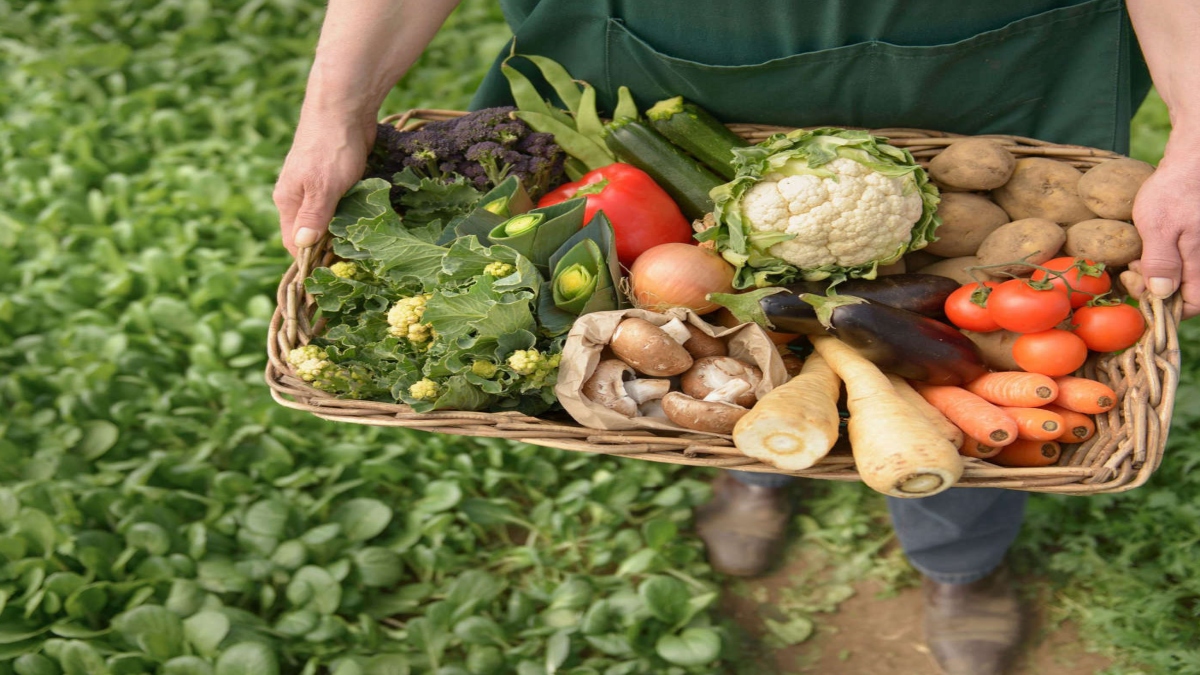In order to keep pace with the changing regulatory requirements for export of organic products to European Union, the Agricultural and Processed Food Products Export Development Authority (APEDA) organized a webinar jointly with the Indian Embassy in Brussels and Denmark yesterday.
The webinar focussed on the revised Regulations being implemented since 1st January 2022 for imports in EU and the market opportunities for Indian organic products.
The European Union is the second major destination for Indian organic food products. Under the National Programme for Organic Production (NPOP), exports to EU stood at $356 million in 2020-21, accounting for around 34% of the $1040 million worth worldwide organic food products exported from India.
Organic food products from India are exported to USA, European Union, Canada, Great Britain, Korea Republic, Israel, Switzerland, Ecuador, Vietnam, Australia, etc. In terms of export value realization, Processed foods including soya meal (57%) lead among the products followed by Oilseeds (9%), Cereals and millets (7%), Plantation crop products such as Tea and Coffee (6%), Spices and condiments (5%), Medicinal plants(5%), Dry fruits (3%), Sugar(3%), and others.
While complementing the stakeholders on the milestone achieved by India by crossing remarkable export of more than $1billion organic products under NPOP, Dr. M. Angamuthu, Chairman, APEDA, emphasized that the applicable standards need to be adhered to in order to maintain the market acceptance by the end consumers and the national regulators. He also stated that APEDA provides possible means for market penetration of new products and brand building through participation in organic food fairs in EU.
In order to address the challenges faced by the Indian exporters in exporting to EU and enhance the share of Indian organic product shipments to EU, a panel discussion was also held with members of OrganicDenmark, Confederation of Indian Organic Industry, International Federation of Organic Agriculture Movements (IFOAM) and Organic Processing and Trade Association (Europe) (OPTA). Technical sessions were led by Michel Reynaud of IFOAM and Aurora Abad of OPTA wherein the aspects on new regulatory requirements and emerging market opportunities were detailed.
In his address, Santosh Jha, Ambassador of India to Belgium, Luxembourg and EU, highlighted the necessity for the market acceptance for organic products, expectation by the importing countries and emerging opportunities for Indian organic products.
Pooja Kapur, Ambassador of India to Denmark, spoke about the current organic market trend focussing on Europe, significance of regulatory system and brand building for India.
Though the webinar was aimed for Indian exporters, it witnessed the participation of trade associations in EU, Indian missions of various EU Member States, Certification Bodies, Assessors and officials from various departments.
APEDA is the implementing body for the National Programme for Organic Production (NPOP). The programme involves the accreditation of Certification Bodies, standards for organic production, promotion of organic farming and marketing, etc. The NPOP standards for production and accreditation system have been recognized by European Commission and Switzerland for unprocessed plant products as equivalent to their country standards. With these recognitions, Indian organic products duly certified by the accredited Certification bodies of India are accepted by the importing countries. APEDA is also in the process of negotiation with South Korea, Canada, Japan,Australia etc.
In 2020-21, India produced around 3496800 Metric Tonne of certified organic products which includes all varieties of food products namely Oil Seeds, Fibre, Sugarcane, Cereals & Millets, Pulses, Aromatic & Medicinal Plants, Tea, Coffee, Fruits, Spices, Dry Fruits, Vegetables, Processed foods etc. The organic production is not limited to the edible sector but also raw cotton, functional food products etc. Among different states, Madhya Pradesh is the largest producer followed by Maharashtra, Karnataka, Rajasthan and Uttar Pradesh. In terms of commodities, Oil seeds are the single largest category followed by Fibre crops, Sugar crops, Cereals and Millets, Spices & Condiments, Pulses, Medicinal plant products, Fruits & Vegetables, Tea, Coffee, Dry Fruits etc.
In 2000, the Ministry of Commerce and Industry launched NPOP as the first such institutional mechanism for organic products in India. In 2001, the NPOP was brought under the ambit of Foreign Trade Development and Regulation (FTDR) Act wherein it was mandated that no organic products can be exported unless they are certified under National Programme for Organic Production.























